Animals In Captivity
Animal Photography
Often a challenging subject, animals don't necessarily do what you want them to but animals in captivity are often relaxed enough for you to find a shot of them. These animals at rest are enjoying a warm spring afternoon with not much to do other than graze, warm themselves and generally enjoy life.
Giraffe
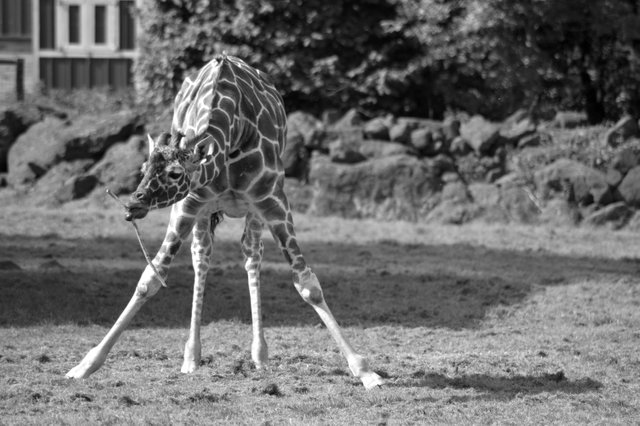
Animals in captivity are protected from the many threats they experience in the wild and while I (like many people) have mixed feelings about keeping large intelligent animals in small spaces, bereft of the challenges of life, I also see their purpose as refuges and as a place of education about the (dwindling) natural world.
Giraffe Hide
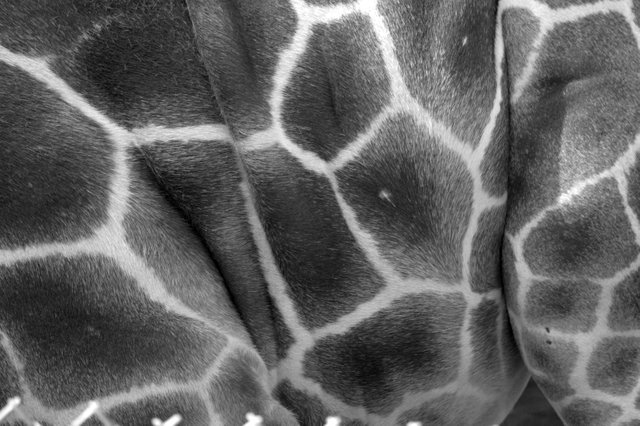
Animals in captivity often live much longer than their wild cousins. They benefit from regular medical care, pharmaceutical and surgical interventions and constant observation. They also don't have to find a mate as one may be brought in especially for company and breeding. These animals all live in large enclosures with no dry season to wilt away their food and water.
Mara
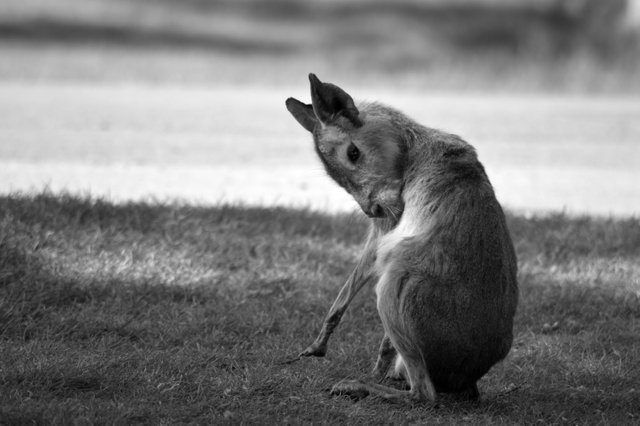
Living in the English Countryside is a rather relaxed and lush affair for most of the animals, where grass grows all year round and keepers regularly prune the woodland for food.
Lion
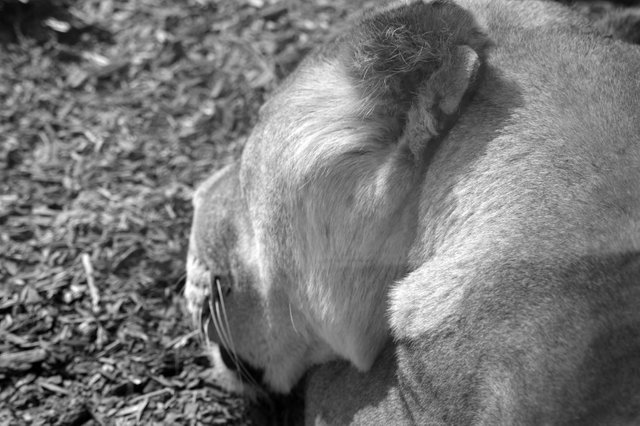
Lions don't ever get to hunt in captivity. I wonder if this diminishes their life ? They are offered cuts of butchered meat, although in the wild a Lion will always take a meal from another predator if they get the chance. Perhaps they don't mind not hunting. They certainly don't have to worry about a territorial male wandering in to kill all their cubs.
White Rhinoceros
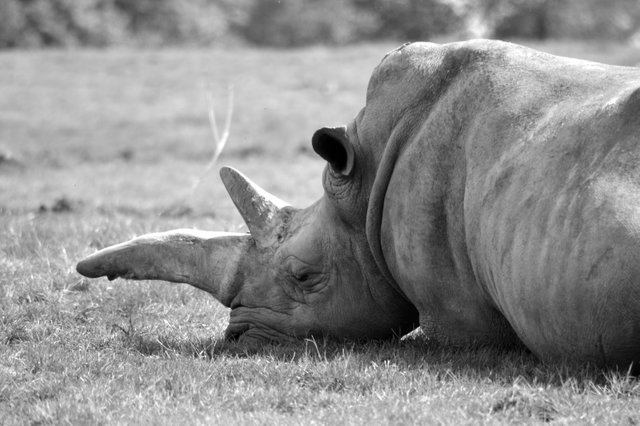
The Rhino probably has a better situation in captivity than most animals. It has a price on it's head for what amounts to not much more than a very large fingernail. It's majestic horn is prized, which means that this great beast, one of the very last of the Planet's great MEgaFAuna is almost extinct. I find that ridiculously sad so to see this lumbering beast, whiling away it's afternoon's in a park in England is both reassuring and quite poignant, a reminder of human's true impact upon nature in a very destructive and almost robot like way.
Pygmy Hippopotamus
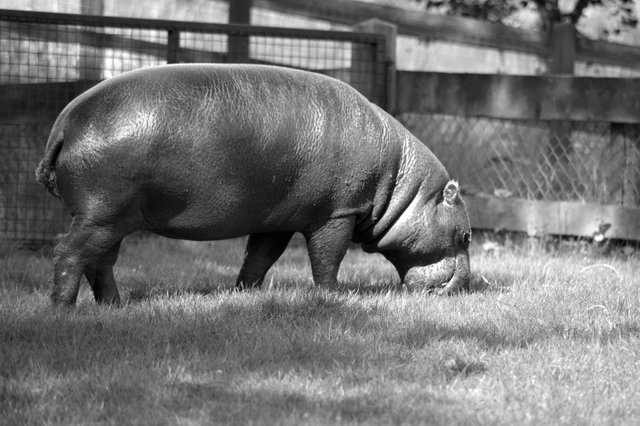
The Pygmy Hippo is a small cousin of it's larger and more well known cousin. It's still a mighty beast but without the enormous mouth. It's a veritable lawnmower and is seen here munching through kilos of lush grass. I always find it amazing that the biggest animal eat nothing more than simple green grass, which is a clue to nature. They have a very different digestive system to us omnivores. One thing I took away from this visit is that almost all of the animals here are strict specialist eaters and that limits their existence. Unlike ourselves, pigs & rats, who can pretty much eat anything they like.
https://steemit.com/christianity/@bible.com/verse-of-the-day-revelation-21-8-niv
I find that what's cool about shooting exotic animals in nature parks and zoos is that you can get some amazing close-ups if you have a little patience. It's kind of funny to think about... when I was little, I enjoyed the zoo for the animals; now I take our grandkids and they keep having to pull me off my camera!
Yeah I know what you mean. I find that taking photographs enhances my memory of any given event. (probably the same for most people). I took a 70-300mm lens with me on this fine day and it was the perfect range. not an amazingly expensive lens or fast but it really captures the detail at a distance. thanks and nice avatar @redddragonfly it does what it says on the tin !
Good shots, accurate time, reflects the sensitivity by animals and excellent technical... Good job.